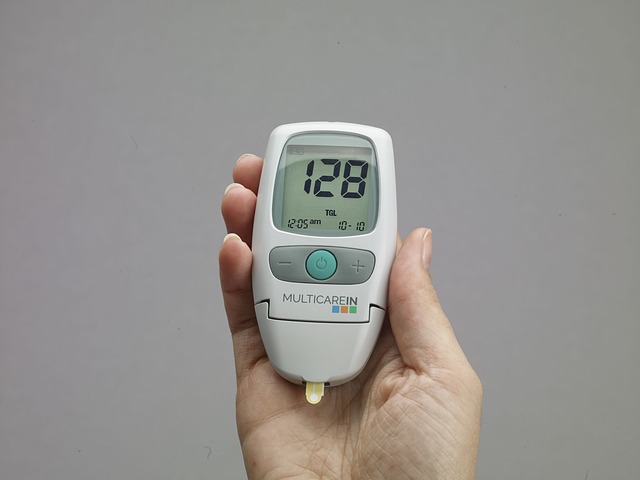The UK Standard Liver Blood Test is a key tool for identifying vitamin B12 deficiency, which causes symptoms like fatigue, memory loss, balance issues, tingling sensations, and anaemia. Deficiency can result from dietary deficiencies, medical conditions, age-related absorption problems, or certain medications; vegetarians and vegans are at higher risk. The test measures markers such as ALT, AST, haemoglobin, and red blood cell count to detect deficiency and potential complications. Early detection allows for interventions like dietary changes or supplements, while regular testing is recommended for high-risk individuals.
“Discover how a simple blood test can reveal a hidden vitamin B12 deficiency, a condition affecting many more people than you might think. This comprehensive guide explores the UK Standard Liver Blood Test as a key tool in diagnosing this deficiency, highlighting its importance for overall health.
We’ll delve into the symptoms and underlying causes, providing insights to help recognize potential issues early. Additionally, we’ll break down how to interpret test results and the steps to take afterward, empowering you with knowledge about managing your B12 levels.”
- Understanding Vitamin B12 Deficiency: Symptoms and Causes
- The Role of UK Standard Liver Blood Test in Diagnosing Deficiency
- Interpretation of Results and Next Steps After Testing
Understanding Vitamin B12 Deficiency: Symptoms and Causes
Vitamin B12 deficiency is a condition that occurs when your body doesn’t have enough of this essential nutrient. It plays a crucial role in maintaining healthy blood cells and nerve function. A UK Standard Liver Blood Test can help identify this deficiency by measuring the levels of homocysteine and vitamin B12 in your blood.
Symptoms of B12 deficiency include fatigue, weakness, memory loss, difficulty balancing, and tingling or numbness in the hands and feet. It can also cause anaemia, leading to shortness of breath and pale skin. The causes can be varied: dietary deficiencies, certain medical conditions like Crohn’s disease, age-related absorption issues, and some medications. Vegetarians and vegans are particularly at risk due to the primarily animal-based sources of Vitamin B12.
The Role of UK Standard Liver Blood Test in Diagnosing Deficiency
The UK Standard Liver Blood Test plays a pivotal role in diagnosing vitamin B12 deficiency, offering a comprehensive overview of a patient’s nutritional status. This test measures the levels of various liver enzymes and proteins, including alanine aminotransferase (ALT) and aspartate aminotransferase (AST), which can be indicators of impaired liver function often associated with deficiency. By analysing these markers, healthcare professionals can identify potential issues related to B12 levels.
Additionally, the blood test assesses haemoglobin and red blood cell count, providing insights into anaemia, a common symptom of vitamin B12 deficiency. The UK Standard Liver Blood Test is a valuable tool due to its ability to detect early signs of deficiency, allowing for prompt intervention and treatment to prevent further complications.
Interpretation of Results and Next Steps After Testing
Interpreting Your Results and Next Steps
After undergoing a UK Standard Liver Blood Test, your results will provide valuable insights into your vitamin B12 levels. If the test indicates a deficiency, it’s crucial to understand the implications. Vitamin B12 is essential for nerve function, blood cell formation, and DNA synthesis, so a lack thereof can lead to various health concerns. Your healthcare provider will interpret the results in context with your medical history and symptoms to determine the best course of action. This may include dietary adjustments, supplementation, or further investigation into potential underlying causes.
If your test results are within the normal range, it’s still advisable to discuss any relevant symptoms with your doctor. Sometimes, even mild deficiencies can go unnoticed but may impact overall health over time. They might recommend repeat testing at regular intervals, especially if you’re at higher risk for deficiency due to certain medical conditions or medications.
Vitamin B12 deficiency can often go unnoticed, but it’s crucial to identify and address through accurate testing. The UK Standard Liver Blood Test plays a significant role in diagnosing this deficiency by measuring levels of key markers. Understanding the interpretation of test results is essential for taking appropriate next steps towards treatment, ensuring optimal health.
